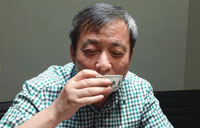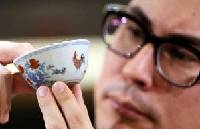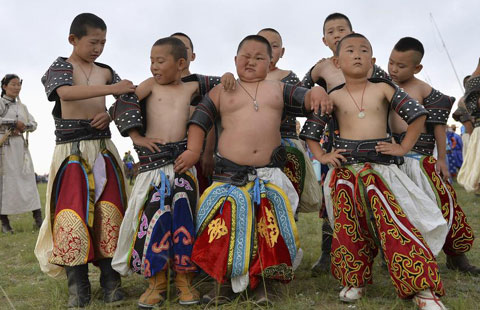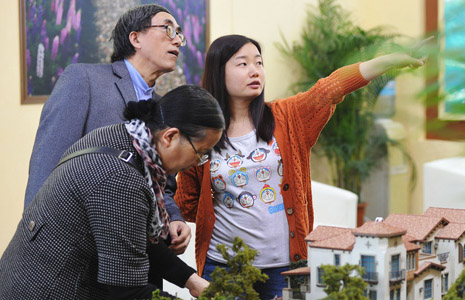Collector pays $36 million for tea cup
Updated: 2014-07-25 09:56
By Zhang Kun (China Daily)
|
|||||||||||
|
|
| 'Chicken cup' sip has netizens on boil |
| Chenghua 'chicken cup' expected to fetch record price |
The royal families of the Ming Dynasty (1368-1644) favored these chicken cups not only because they used the latest doucai technique, but also for the patterns that signify harmonious country life.
Doucai literally means "colors which fit together", and it was difficult to achieve in the 15th century because the blue color had to be done underglaze, while other colors overglaze, and no satisfactory overglaze blue enamel was available at the time.
Nicholas Chow, deputy chairman of Sotheby's Asia, recounted the first time he came into close contact with a Chenghua chicken cup more than 10 years ago. He was told to remove the cup from the cabinet to show to a client.
Chow tells Chinese media that he was greatly moved by the trust from his boss at the time, and "had never been so nervous" walking about 15 meters across the hall floored with marble.
He calls the piece "the holy grail of Chinese art", and says "there is no more legendary object in the history of Chinese porcelain".
He also points out that it was the most imitated piece of artwork in China, with "tens of thousands, perhaps hundreds of thousands of copies going around in China".
Search for the Chinese characters "ji gang bei" (chicken cup) on Taobao.com, China's premier online marketplace, and you will find more than 20 pages of products for sale, priced from 10 yuan ($1.60) to more than 1,000 yuan.
Some of the online sellers boast that their product is in the "same style as Sotheby's", and entice buyers to "experience 280 million yuan for 18 yuan".
At the Long Museum established by Liu and his wife Wang Wei in 2012, the chicken cup will join other pieces in their private collection, such as an imperial throne from the 18th century, the painted scroll Sketches of Rare Birds by Zhao Ji, an 11th-century emperor of the Song Dynasty (960-1279), and Gongfu Tie, arguably the only surviving calligraphy by Chinese writer Su Shi (1037-1101) of the Northern Song Dynasty (960-1127).
zhangkun@chinadaily.com.cn
Related Stories
'Chicken cup' sip has netizens on boil 2014-07-21 16:00
Ming Dynasty 'chicken cup' sells for record $36 million 2014-04-09 07:56
Chenghua 'chicken cup' expected to fetch record price 2014-03-14 16:21
Spring Silkworm painting fetches $7m at auction 2014-06-03 14:59
Christie's Shanghai 2014 spring auction preview 2014-04-19 08:59
'Chicken cup' sets new auction record 2014-04-08 16:09
Today's Top News
Putin bans agricultural imports from West
UK names 'China hand' as new envoy
China film looks to global audience
China to exclude Apple products
Dutch firm to take over MH370 search
Nanjing takes fresh approach to Youth Olympics
China to punish Chrysler, Audi over monopoly
Beijing boosts checks on foreigners
Hot Topics
Lunar probe , China growth forecasts, Emission rules get tougher, China seen through 'colored lens', International board,
Editor's Picks

|

|

|

|

|

|







